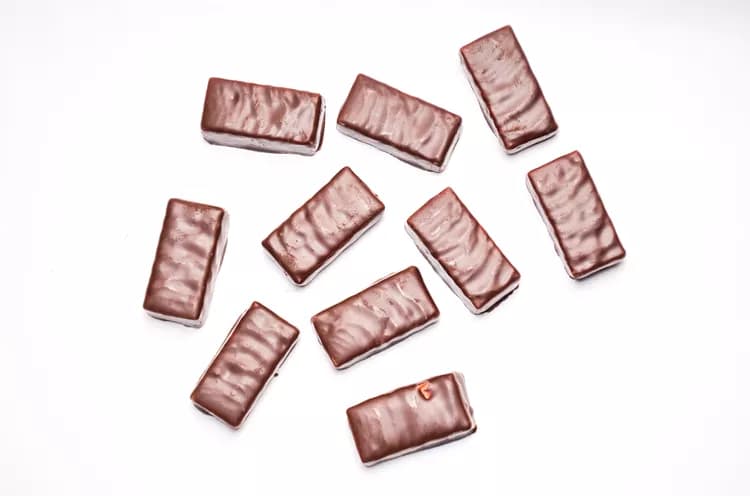
Does Good-Tasting Food Cause Weight Gain?
Does eating good-tasting food make you gain weight? Despite the common perception that good-tasting food is unhealthy and causes obesity, new research from the Monell Center using a mouse model suggests that desirable taste in and of itself does not lead to weight gain.
"Most people think that good-tasting food causes obesity, but that is not the case. Good taste determines what we choose to eat, but not how much we eat over the long-term," said study senior author Michael Tordoff, PhD, a physiological psychologist at Monell.
Researchers who study obesity have long known that laboratory rodents fed a variety of tasty human foods, such as chocolate chip cookies, potato chips and sweetened condensed milk, avidly overeat the good-tasting foods and become obese.
These studies have provided support for the common belief that tasty food promotes overeating and ensuing weight gain. However, because no study had separated the positive sensory qualities of the appetizing foods from their high sugar and fat content, it was impossible to know if the taste was actually driving the overeating.
Accordingly, Tordoff and colleagues designed a series of experiments to assess the role of taste in driving overeating and weight gain. The findings are published online ahead of print in the journal Physiology & Behavior.
The researchers first established that laboratory mice strongly like food with added nonnutritive sweet or oily tastes. To do this they gave mice two cups of food. One group of mice had a choice between a cup of plain rodent chow and a cup of chow mixed with the noncaloric sweetener sucralose. The other group received a choice between a cup of plain rodent chow and a cup of chow mixed with mineral oil, which also has no calories.
The mice ignored the plain chow and ate almost all of their food from the cups containing the sweetened or oily chow, establishing that these non-caloric tastes were indeed very appealing.
Next, new groups of mice received one of the three diets for six weeks: one group was fed plain chow, one group was fed chow with added sucralose, and one group was fed chow with added mineral oil. At the end of this period, the groups fed the sweet or oily chow were no heavier or fatter than were the animals fed the plain chow.
Additional tests revealed that even after six weeks, the animals still highly preferred the taste-enhanced diets, demonstrating the persistent strong appeal of both sweet and oily tastes.
In another experiment, the researchers fed mice a high-fat diet that is known to make mice obese. Mice fed this high-fat diet sweetened with sucralose got no fatter than did those fed the plain version.
"Even though we gave mice delicious diets over a prolonged period, they did not gain excess weight. People say that 'if a food is good-tasting it must be bad for you,' but our findings suggest this is not the case. It should be possible to create foods that are both healthy and good-tasting," said Tordoff.
Materials provided by Monell Chemical Senses Center. Note: Content may be edited for style and length.
Disclaimer: DoveMed is not responsible for the adapted accuracy of news releases posted to DoveMed by contributing universities and institutions.
Primary Resource:
Tordoff, M. G., Pearson, J. A., Ellis, H. T., & Poole, R. L. (2016). Does eating good-tasting food influence body weight?. Physiology & Behavior. DOI: 10.1016/j.physbeh.2016.12.013
Related Articles
Test Your Knowledge
Asked by users
Related Centers
Related Specialties
Related Physicians
Related Procedures
Related Resources
Join DoveHubs
and connect with fellow professionals

0 Comments
Please log in to post a comment.